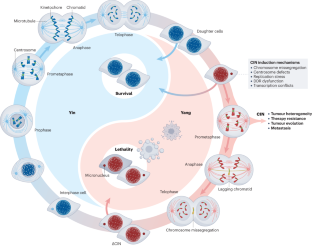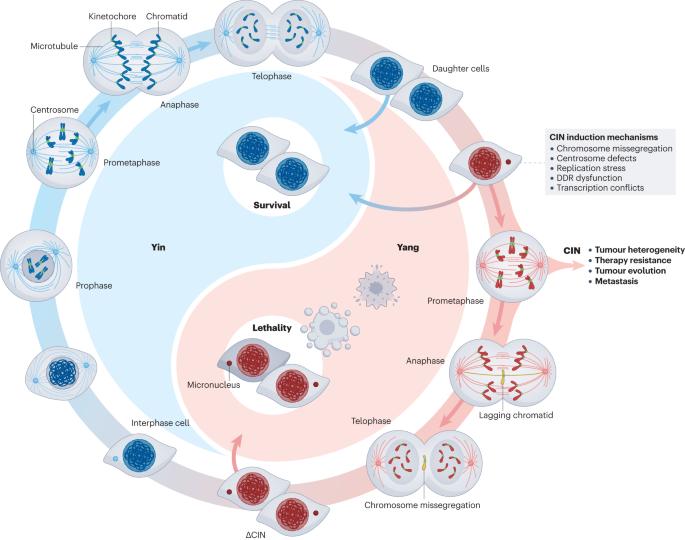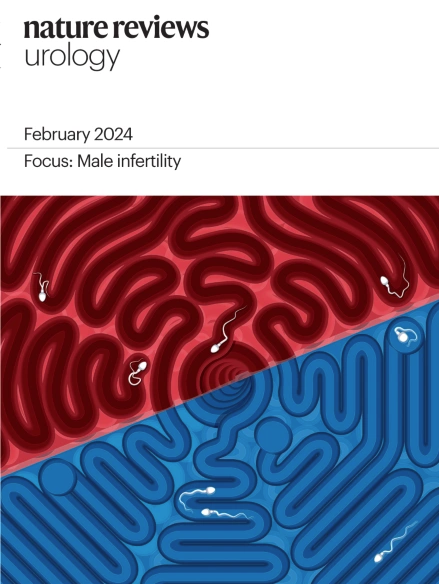The yin and yang of chromosomal instability in prostate cancer
IF 12.1
1区 医学
Q1 UROLOGY & NEPHROLOGY
引用次数: 0
Abstract
Metastatic prostate cancer remains an incurable lethal disease. Studies indicate that prostate cancer accumulates genomic changes during disease progression and displays the highest levels of chromosomal instability (CIN) across all types of metastatic tumours. CIN, which refers to ongoing chromosomal DNA gain or loss during mitosis, and derived aneuploidy, are known to be associated with increased tumour heterogeneity, metastasis and therapy resistance in many tumour types. Paradoxically, high CIN levels are also proposed to be detrimental to tumour cell survival, suggesting that cancer cells must develop adaptive mechanisms to ensure their survival. In the context of prostate cancer, studies indicate that CIN has a key role in disease progression and might also offer a therapeutic vulnerability that can be pharmacologically targeted. Thus, a comprehensive evaluation of the causes and consequences of CIN in prostate cancer, its contribution to aggressive advanced disease and a better understanding of the acquired CIN tolerance mechanisms can translate into new tumour classifications, biomarker development and therapeutic strategies. Chromosomal instability is a hallmark of advanced prostate cancer. In this Review, the authors discuss the biological causes and paradoxical consequences of chromosomal instability, its potential clinical role in the stratification of prostate cancer aggressiveness and the development of novel treatment strategies.


前列腺癌染色体不稳定性的阴与阳
转移性前列腺癌仍然是一种无法治愈的致命疾病。研究表明,前列腺癌在疾病进展过程中会积累基因组变化,在所有类型的转移性肿瘤中,前列腺癌的染色体不稳定性(CIN)水平最高。CIN指的是有丝分裂过程中持续的染色体DNA增减和衍生的非整倍体,已知与多种肿瘤类型的肿瘤异质性增加、转移和耐药性有关。矛盾的是,高 CIN 水平也被认为不利于肿瘤细胞的存活,这表明癌细胞必须发展适应机制以确保其存活。就前列腺癌而言,研究表明,CIN 在疾病进展过程中起着关键作用,也可能是一种可作为药物靶点的治疗弱点。因此,全面评估 CIN 在前列腺癌中的成因和后果、其对侵袭性晚期疾病的贡献以及更好地了解获得性 CIN 耐受机制,可以转化为新的肿瘤分类、生物标志物开发和治疗策略。
本文章由计算机程序翻译,如有差异,请以英文原文为准。
求助全文
约1分钟内获得全文
求助全文
来源期刊

Nature Reviews Urology
医学-泌尿学与肾脏学
CiteScore
12.50
自引率
2.60%
发文量
123
审稿时长
6-12 weeks
期刊介绍:
Nature Reviews Urology is part of the Nature Reviews portfolio of journals.Nature Reviews' basic, translational and clinical content is written by internationally renowned basic and clinical academics and researchers. This journal targeted readers in the biological and medical sciences, from the postgraduate level upwards, aiming to be accessible to professionals in any biological or medical discipline.
The journal features authoritative In-depth Reviews providing up-to-date information on topics within a field's history and development. Perspectives, News & Views articles, and the Research Highlights section offer topical discussions and opinions, filtering primary research from various medical journals.
Covering a wide range of subjects, including andrology, urologic oncology, and imaging, Nature Reviews provides valuable insights for practitioners, researchers, and academics within urology and related fields.
文献相关原料
| 公司名称 | 产品信息 | 采购帮参考价格 |
|---|
 求助内容:
求助内容: 应助结果提醒方式:
应助结果提醒方式:


